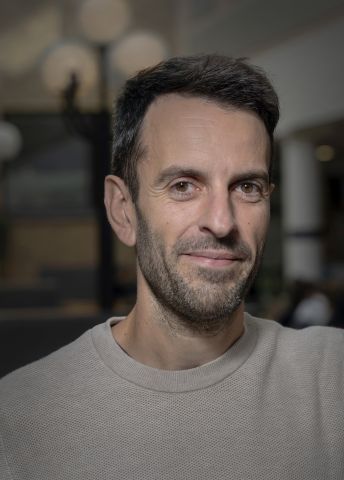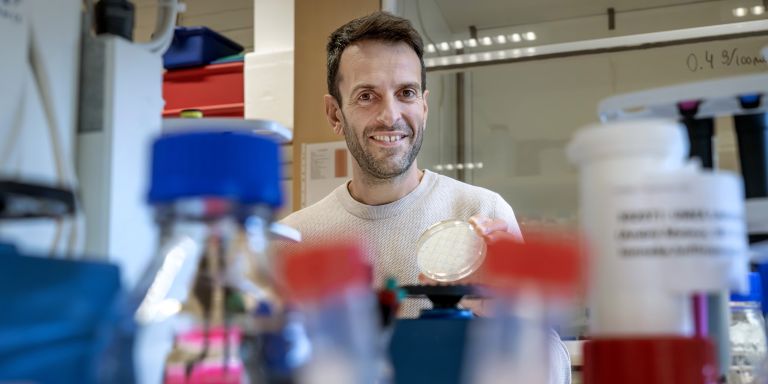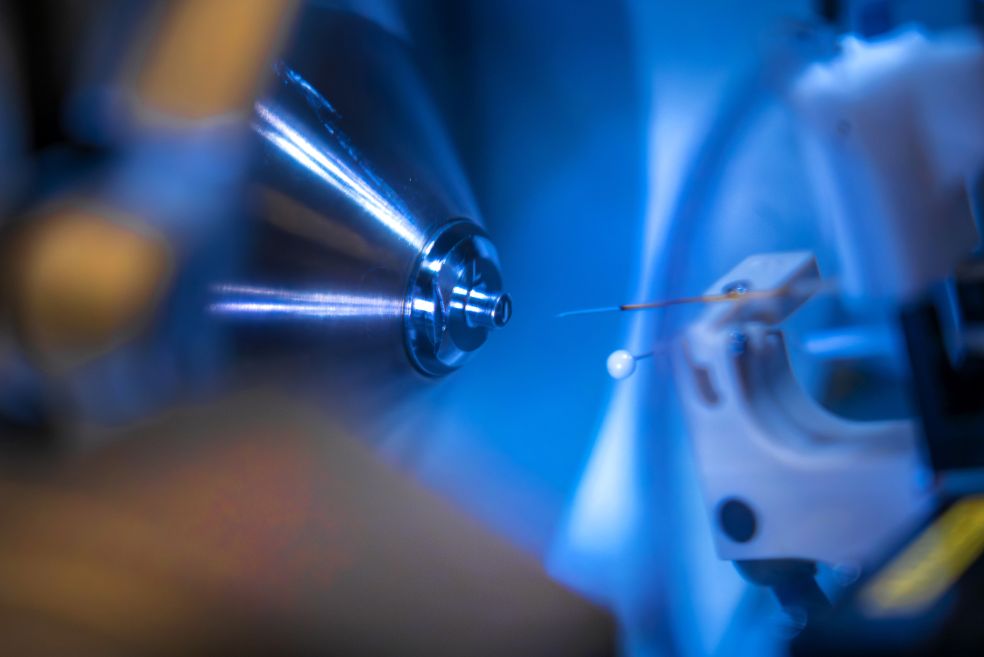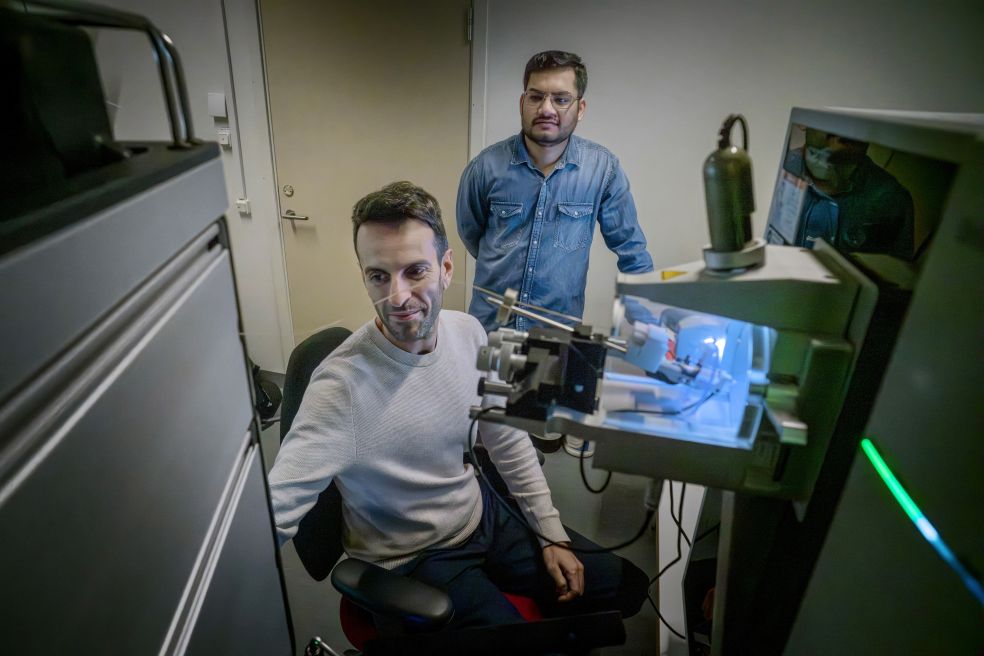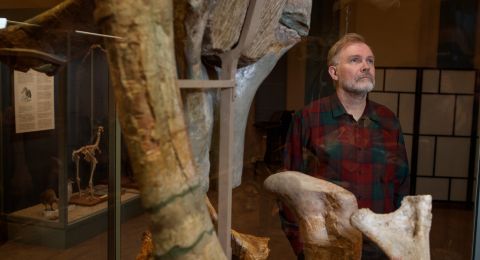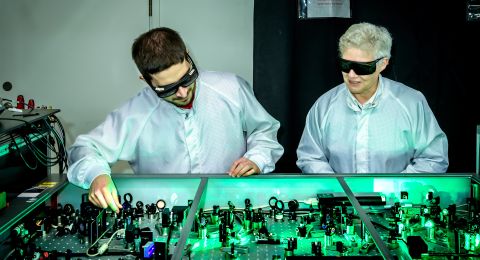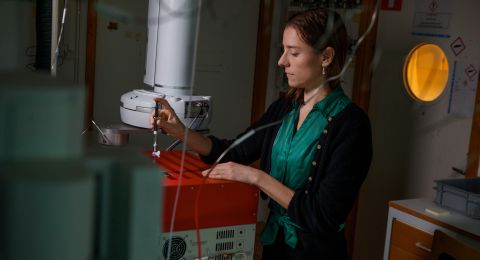Our intestines teem with life. Billions of bacteria are already known and play a crucial role in our health – but there is also an almost invisible neighboring group: the Archaea. These are ancient microorganisms that have existed on Earth for billions of years, but whose function in the human body remains something of a mystery.
André Mateus
PhD in pharmaceutical sciences
Wallenberg Academy Fellow 2023
Institution:
Umeå University
Research field:
Mapping protein function in Archaea in the human microbiome using proteomics and systems biology
Researcher André Mateus of Umeå University now has the chance to change that. As a newly appointed Wallenberg Academy Fellow, he has received the resources needed to establish an entirely new line of research.
Archaea were previously called Archaebacteria. Researchers believed they were a subset of bacteria, but when they studied Archaea more closely, they discovered they are quite unlike bacteria. Archaea were then given their own kingdom, or domain as it is now called in biology.
“Archaea are extremely resilient and live everywhere, including our intestines. We know they’re present in almost all human intestines, but we don’t really know what they do there. With the new resources we have received, we can for the first time begin to map their functions and their role in our health,” he says.
New lab in Umeå
The Wallenberg Foundation grant has given Mateus the opportunity to develop his proteomics laboratory, where researchers analyze all the proteins in an organism simultaneously. The idea is to use new techniques to monitor how Archaean proteins react to different stresses, such as drugs.
The major challenge is that intestinal Archaea are not easy to study, for example most cannot grow in the presence of oxygen. They are also very different from common model organisms like E. coli or Streptococcus.
“This means we cannot use the traditional methods of molecular biology. In our lab, we instead try to use an approach based on measuring the proteome – i.e., measuring the levels or other properties of all proteins at once,” says Mateus.
He continues:
“You could say we’re testing how the Archaea respond when we ‘disturb’ them a little. We see which proteins are turned on or off. This helps us to understand what functions they have – and perhaps also what happens when something goes wrong. It’s a bit like blocking a street in a city and seeing where traffic jams form – and which roads remain clear. We aim to gain an understanding of the structure of Archaean networks and to understand how they may affect our health,” Mateus explains.
The new lab will be unique. In addition to strengthening Umeå’s position as a research center in life sciences, it opens the door to entirely new questions: Are Archaea involved in diseases – or do they have a protective role in the body?
Intestinal bacteria are already known to impact many biological processes, from the immune system to mental health. Research has shown that impairment of the gut flora balance can be a contributory factor in diseases. But Archaea have so far remained in the shadows.
The most exciting thing is that we are exploring unknown territory. We may discover an entirely new function in a protein – a function no one has described before.
“Most studies of the microbiome focus solely on bacteria. But if we disregard Archaea, we gain an incomplete picture. We want to understand whether their functions can be linked to diseases that we cannot yet explain,” says Mateus.
If the research succeeds, it could pave the way for new treatments that target not only bacteria, but also Archaea.
The journey to Umeå
Mateus hails from Portugal, and has always had an abiding thirst for knowledge. He began his research career in Uppsala before moving to Germany, where he specialized in advanced proteomics analyses – techniques that enable scientists to see how proteins react to external changes in real time. He moved to Umeå in 2022 and now heads a research group at the Department of Chemistry. He is also affiliated with the Laboratory for Molecular Infection Medicine Sweden, MIMS.
“The feeling of exploring terra incognita is a driving force for me. The most exciting moments are when we find an entirely new function in a protein, a function no one has described before. It might ultimately lead to a new therapy, or a new biotechnological tool. It is this sense of discovery that makes research so meaningful,” he says.
More than research
For Mateus, the work is not only about scientific discoveries. He is also passionate about ensuring a creative environment where young researchers can thrive.
“It’s fantastic to follow PhD students and postdocs as they find their own way. Being a supervisor is almost as exciting as the research itself,” he says.
From his new base in Umeå, Mateus hopes to give Archaea a clearer place in medical research. For him, it is not just a project – but the beginning of a long-term initiative that could change how we view the hidden ecosystem of the intestines.
“We still don’t know what role they play. But that is precisely why it is so important to study them. If we can understand the function of Archaea, we can gain a more complete picture of the intestinal ecosystem – and in the long run perhaps learn new ways to promote health,” he says, adding:
“I hope we can combine our findings with other research going on in our laboratory to understand the role of the gut microbiome in health and disease.”
Text Elin Olsson
Translation Maxwell Arding
Photo Johan Gunséus
